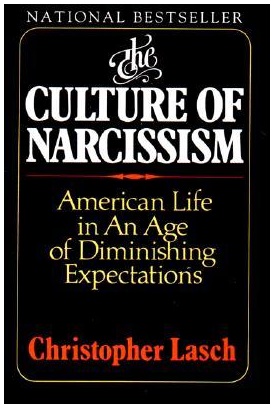The Baffler
"For better and worse, modern parents are far more sensitive to outside influences than their premodern predecessors. Arranged marriages are now all but unknown in developed societies, corporal punishment is virtually obsolete, and the sexual double standard is under heavy fire. Meanwhile, each child’s respect for diversity and, of course, self-esteem is diligently cultivated. And all these changes are enforced or encouraged by an array of professionals and agencies. All good; but this anxious, busy solicitude comes at a price: authority is no longer localized in a self-sufficient household that controls its own subsistence and work rhythms. According to Lasch, this displacement of authority from the child’s immediate environment to far-removed, abstract entities—the state, the corporation, the medical and educational bureaucracies—makes it harder for the child to achieve emotional independence. Love is necessary but not sufficient; “love without authority,” Lasch wrote, “does not make a conscience.”
Why? Psychoanalytic theory offers a speculative but intricate and coherent explanation. Because the human brain is more complex and slower to mature than any other mammal’s, the human infant is uniquely helpless at birth, unable to distinguish between itself and the rest of the world. It cannot distinguish between the source of its needs (its own body) and the source of their satisfaction (mainly its mother), which gives rise to a feeling of omnipotence. When some of those needs eventually go unmet, the infant becomes aware of its separation from the rest of the world, and in particular from its parents, which gives rise to helplessness and rage. Gradually it dawns on the infant that the source of its gratifications and the source of its frustrations are the same: the parents. This recognition is bewildering and intolerable; it cannot be coped with, only repressed.
The return of the repressed, either as symptom or as fantasy, is inescapable: this is the psychoanalytic equivalent of the law of gravity or the conservation of energy. And precisely because the infant is so helpless, its fantasies—of undifferentiated union with its parents, of annihilating them, or of being annihilated by them—are, by way of compensation, outsized. If the infant is to live with these conflicting impulses and the ambivalence they generate, it must scale them down, reduce them to life-sized, manageable proportions.
Throughout human history until industrialization—that is, until seven or eight generations ago—children had the everyday experience of watching their parents at work, where they were seen to make mistakes and also to possess useful skills that they were willing to teach. This reduced the idealized or demonized parents of the child’s fantasies to life size. Even more important, the regular experience of love and punishment from the same source taught a vital lesson: that those with the ultimate authority over the child could be trusted, and that their disapproval did not threaten the child’s very existence. This fundamental, gradually accumulating emotional security enabled the child to slough off archaic fantasies and grow up. When the ultimate authority in a child’s life is no longer localized in a pair of adult humans but rather is invested in abstractions like a company or a social-welfare bureaucracy, those fantasies persist. The child’s ambivalence toward authority has no focus and so can’t be put to rest. Later in life, still plagued by these unconscious specters, the adult develops what Lasch identified as the neurotic personality trait of our time: narcissism.
“Narcissism” has an everyday and a psychoanalytic meaning. A story in the September 4 New York Times illustrates the everyday meaning: “The political rise of Donald J. Trump has drawn attention to one personality trait in particular: narcissism. Although narcissism does not lend itself to a precise definition, most psychologists agree that it comprises self-centeredness, boastfulness, feelings of entitlement and a need for admiration.” Trump is certainly a narcissist in this sense, but the psychoanalytic sense is different: a weak, beleaguered self rather than an overbearing, assertive one. A disciple of Lasch’s (i.e., me) has described the narcissistic personality in these terms:
wary of intimate, permanent relationships, which entail dependence and thus may trigger infantile rage; beset by feelings of inner emptiness and unease . . . ; preoccupied with personal “growth” and the consumption of novel sensations; prone to alternating self-images of grandiosity and abjection; liable to feel toward everyone in authority the same combination of rage and terror that the infant feels for whoever it depends on; unable to identify emotionally with past and future generations and therefore unable to accept the prospect of aging, decay, and death.
At least in Lasch’s time, the clinical literature was rife with descriptions of symptoms like these, replacing the obsessional and hysterical neuroses of Freud’s time as the most common forms of psychological distress."

Thanks for the reminder, started this book and never finished it.
ReplyDeleteSeem to remember liking it though, so probably didn't go on the burn pile.
That seemed rather shaky, so I burned that book today for good measure.
DeleteWill order a replacement copy and update here when back up to speed.